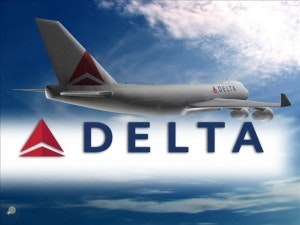
So many carriers have been coming in and out of bankruptcies, and few ever seem capable of landing on a profit. The once six-leading legacy carriers, namely Delta Air Lines, Inc. (NYSE:DAL), Northwest, United Continental Holdings Inc (NYSE:UAL), Continental, American (now in bankruptcy and trading on the OTCQB market under the ticker of AAMRQ) and US Airways Group Inc (NYSE:LCC), have all gone through bankruptcy proceedings, with some of them having done it more than once.
Somehow they have all decided that combining their troubled operations might result in leaner deployments of their air fleet and allow a lighter footing in ground supports. The results are the merger of Delta Air Lines, Inc. (NYSE:DAL) and Northwest, the unifying of United Continental Holdings Inc (NYSE:UAL) and Continental, and the proposed tie-up between American and US Airways Group Inc (NYSE:LCC).
Even so, should any smart money from intelligent investors flow to the airline business? Running an airline involves highly complex operating processes. The business is both capital intensive, requiring high levels of debt to accommodate the acquiring or leasing of costly aircraft, and labor tedious, commanding a massive and varying employment base of pilots, flight attendants, mechanics and ground crews.
Moreover, the airlines’ complex operating processes are interconnected at best and convoluted at worst. Airlines don’t own the airports that house their businesses on the ground and must operate on others’ turf. Even while in the sky, air-traffic control is the federal government’s responsibility, making airlines uncontrollable over on-time departures and arrivals, a service quality often sensitively perceived by customers.
Speaking of customers, unlike any other business, airlines cannot fully guarantee a satisfying customer experience unless their customers are let cross with ease TSA’s security check points, which has become a spectacle of today’s air travel and is counter-productive to the airline business.
Also, the airline business happens to use this most sought-after fuel commodity as a major input, allowing price volatility to interfere with cost-control effort and create a more difficult management task. The purpose of all thees is just to sell plane tickets. How fun can the business be and how high will airline investments fly for investors?
Financial data
Upon reviewing the financial statements of the major carriers, investors may want to reserve this thought that the airlines’ financial data don’t seem to have booked a smooth route to a well-chosen destination. Delta Air Lines, Inc. (NYSE:DAL), the number-one airline in the industry, is actually a negatively-capitalized company and has carried a negative equity of a couple of billion dollars for the past two years.
Technically, the company is again in a bankrupt situation with fewer assets than liabilities, making it unable to pay off creditors and return anything to shareholders if the business is dissolved today.
United Continental Holdings Inc (NYSE:UAL), with a market cap of more than $10 billion, has a total equity of less than half billion dollars, and thus its stock is trading at more than 20 times its book value. The company earned only $39 million in operating income last year on revenue of more than $37 billion, implying an operating margin of about one-tenth of 1%. These numbers are simply unreal for investors to fathom.

